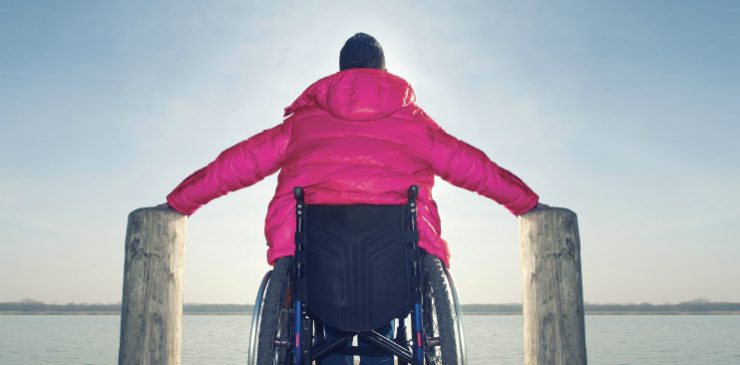With much of the world returning to normal, travel plans are on the list for many Canadians who are eager to sightsee, take a dip in the ocean or visit loved ones abroad. With a wide range of new and changing rules and regulations for travel, there are additional measures to take, which can be an added source of stress if you have a disability or mobility device.
If you’re thinking about getting away this year, here are eight things to plan for to ensure a stress-free trip:
Have your COVID-related documentation ready
Travel regulations have changed drastically since the pandemic hit in 2020 and extra measures often mean extra paperwork. To avoid stress and last-minute anxiety, prepare all of your
COVID-related documentation three days before travelling to ensure a smooth boarding process.
COVID-related documentation can include: proof of negative test, vaccine documentation and any exemptions you may have from current protocols and measures. However, with measures changing constantly, it is important to check in on all of the requirements ahead of time so that you are prepared and ready to enjoy some well-deserved time away.

Pack Essentials for Your Mobility Device
One thing that hasn’t changed when it comes to travel is the need to look out for your mobile device when travelling abroad. The quality of your vacation depends on the integrity and functionality of your device, so be sure to plan ahead for any potential breakdowns. If you use a wheelchair with air tires, be sure to carry two spare inner tubes in case you sustain a flat tire, as well as two tire levers and a compact pump.
For longer trips that include remote areas, national parks and developing countries, consider the following items:
- Allen keys or screwdriver for loose screws
- Spare screws for your caster wheels
- Foldable tires
- Spare rear axle
- Spare spokes
- Front caster wheel bearings
- If you use one sided front caster forks, bring a spare axle
- Spinner knob if renting an accessible car, in case they forget to install one.

Contact the Medical Assistance Desk to Open a File
Did you know that you could open a file with the Medical Assistance Desk of the airline you are flying with? This helps ensure they are aware of any important information pertaining to your disability, mobility device, or medical equipment you may need to bring with you on the flight. This is especially helpful if you will be using attendant care – the Medical Assistance Desk is often able to provide discounted or even free tickets for your PSW. Best of all, once a file is opened on your behalf, it is generally active for several years, helping to reduce travel stress and delivering a more seamless boarding process.
Fun Fact: Air Canada and WestJet provide free companion tickets on domestic flights.

Plan with your Bladder and Bowel Routine in Mind
Bladder: Aircraft washrooms are dreaded by those with disabilities as they are tight on space and difficult to access. If you use a leg bag, you can simply empty it into a water bottle, and if you use intermittent catheterization (IC), it is a good idea to book a window seat so that it can be discretely performed under a blanket. You could also have your urologist or nurse show you how to insert and remove a foley or indwelling catheter which is linked to a leg bag so you don’t have to use a bathroom for the duration of your flight.
Bowel: If you follow a predictable bowel routine, you may be able to plan your flight to avoid needing the toilet to empty your bowels. But if you don’t follow a bowel routine or can’t get a flight outside of one of your bowel days, your best bet is to try to use the washroom as close as possible to your departure to minimize the chance of an accident or wear an adult undergarment.

Look for Accessible Fun and Book Ahead
Nowadays, with the help of social media, it is easy to do research and find accessible activities to enjoy in almost any part of the world. Once you have decided on your destination, get started on your itinerary and avoid surprises like inaccessible venues. Booking ahead can also save a lot of time so you can make the most of your time away.
Be sure to call your hotel directly to confirm they are equipped to meet your accessibility needs; as a general rule of thumb, larger chains undergo renovations more frequently, and are more equipped to deliver an accessible experience for guests with disabilities.
Check out disability travel bloggers like Curb Free Cory, who has a passion for exploring the world – from visiting major cities across the globe to camping to RVing using a power wheelchair, you can find useful advice from others in the community who may have been where you are going.

Take Google with You!
Translate: Google Translate will come in very handy if you are travelling somewhere where English is not the first language. The Google Translate app has additional functionality that allows you to take a photo of a sign or a menu and converts it to English text. The app is also equipped with voice translation and conversation mode and can be downloaded offline so you can do typed text translation on your trip without an internet connection.
Maps: Google Maps is an invaluable tool for travelling. Did you know if you download an offline map using the Google Maps App, you can still use it to pinpoint your location and plot a route to your destination without the internet? Be sure to take Google with you.
No matter where you are headed for travel, have fun, be safe and be sure to enjoy every moment of it – if there is anything that a pandemic has taught us, it’s that time away is not to be taken for granted.







